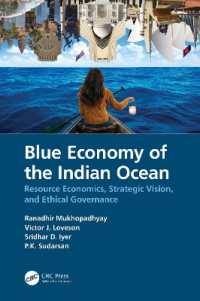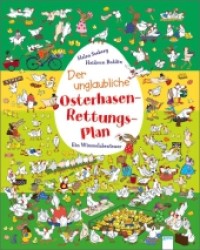- ホーム
- > 洋書
- > 英文書
- > History / World
Full Description
In Engineering Vulnerability Sarah E. Vaughn examines climate adaptation against the backdrop of ongoing processes of settler colonialism and the global climate change initiatives that seek to intervene in the lives of the world's most vulnerable. Her case study is Guyana in the aftermath of the 2005 catastrophic flooding that ravaged the country's Atlantic coastal plain. The country's ensuing engineering projects reveal the contingencies of climate adaptation and the capacity of flooding to shape Guyanese expectations about racial (in)equality. Analyzing the coproduction of race and vulnerability, Vaughn details why climate adaptation has implications for how we understand the past and the continued human settlement of a place. Such understandings become particularly apparent not only through experts' and ordinary citizens' disputes over resources but in their attention to the ethical practice of technoscience over time. Approaching climate adaptation this way, Vaughn exposes the generative openings as well as gaps in racial thinking for theorizing climate action, environmental justice, and, more broadly, future life on a warming planet.
Duke University Press Scholars of Color First Book Award recipient
Contents
Abbreviations vii
Technical Notes ix
Acknowledgments xi
Introduction: "Where Would I Go? There Was No Place with No Water" 1
1. Disaster Evidence 29
2. The Racial Politics of Settlers 47
3. Engineering, Archives, and Experts 69
4. Compensation and Resettlement 97
5. Love Stories 127
6. Accountability and the Militarization of Technoscience 153
7. The Ordinary 177
Conclusion: Materializing Race and Climate Change 197
Notes 205
References 221
Index 247








